Attending the seminar held at Ho Chi Minh City University of Technology were leaders of departments and offices under the Ministry of Education and Training and leaders of higher education institutions in the Southern region.
The Draft Law on Higher Education (amended) has 9 chapters and 54 articles.
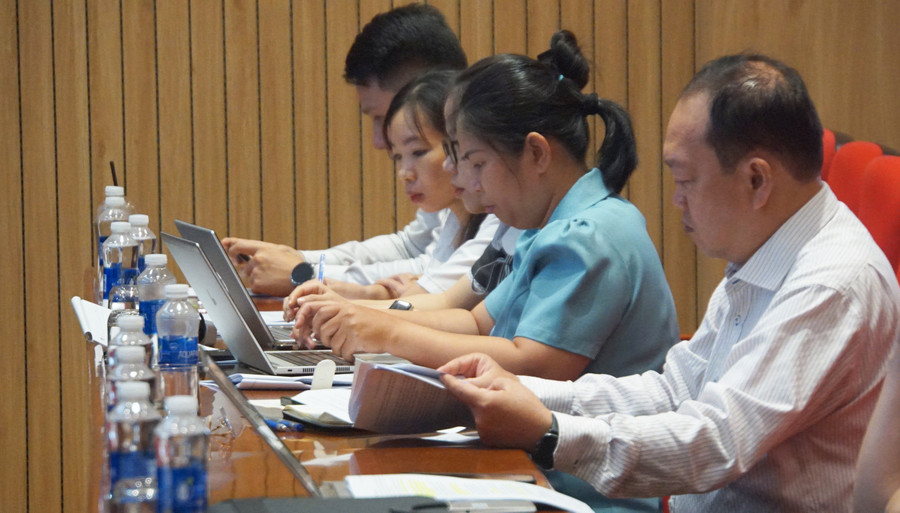
According to the Policy Standardization Explanation of the Law on Higher Education (amended), there are 6 new policy groups in this draft law, including: Improving the effectiveness of state management, creating an advanced university governance system; Modernizing training programs and methods, applying advanced technology and promoting lifelong learning; Positioning higher education institutions as centers for research and innovation associated with training high-quality human resources; Strengthening the mobilization of resources and improving the efficiency of investment in modernizing higher education; Developing a team of excellent lecturers and scientists and a creative and honest academic environment; Innovating approaches, ensuring substance in the work of ensuring the quality of higher education.
Removing many existing shortcomings
At the workshop, many experts and university leaders expressed their agreement with the policy groups of the draft Law on Higher Education (amended) and this draft.
Associate Professor Dr. Nguyen Duc Trung, Principal of Banking University of Ho Chi Minh City, affirmed that the new regulations on the organization and management of higher education institutions, especially the University Council, will effectively resolve the shortcomings that have existed for many years.
Mr. Trung commented that these changes will enhance autonomy, transparency and accountability, contributing to improving the quality of training and management at universities.
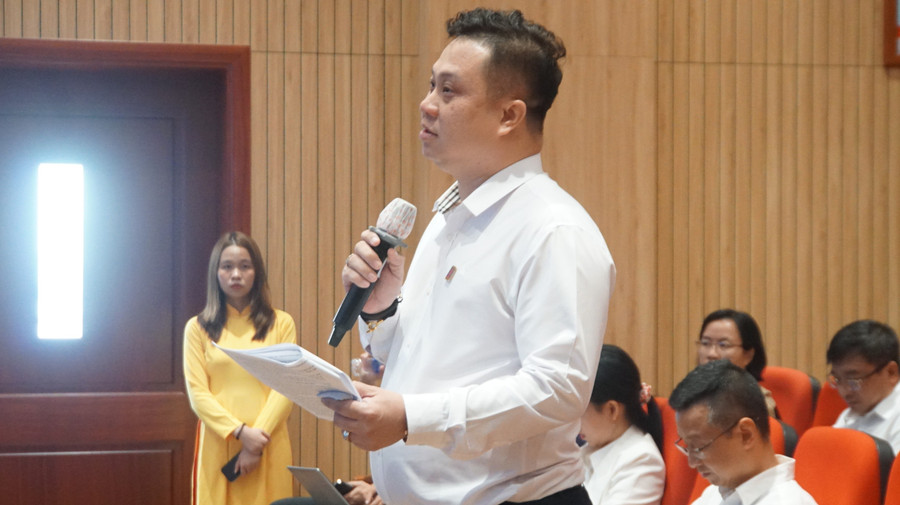
The President of Banking University of Ho Chi Minh City also agreed with the regulations on ranking higher education institutions (Article 40) by allowing universities to proactively choose rankings that are suitable for their development orientation; take responsibility for the accuracy and honesty of data provided to the ranking organization and publicize the ranking results.
At the same time, the organization performing the ranking must have professional capacity and be responsible for the honesty, transparency, and objectivity of the ranking results...
However, he expressed concern that some organizations have recently carried out rankings without clear purposes and criteria, leading to unreliable results and negatively affecting the reputation of schools.
According to Mr. Trung, unclear rankings not only create information confusion but can also be exploited, causing unnecessary misunderstandings about the quality of training and research of training institutions.
Faced with this situation, the Principal of Ho Chi Minh City Banking University hopes that the draft law or decree or circular will have specific and strict regulations on the organization and implementation of university rankings.
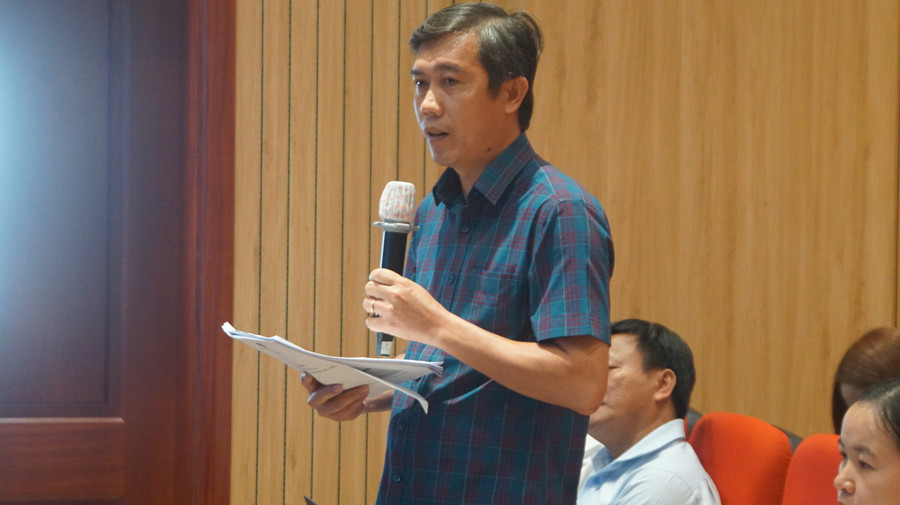
Following the comments, Dr. Truong Tan Dat, Chairman of the University Council of Dong Thap University, expressed his agreement and highly appreciated the feasibility of the draft.
Mr. Dat commented that the draft has inherited positive points and effectively overcome limitations from the practical implementation of the Law amending and supplementing a number of articles of the Law on Higher Education (Law No. 34/2018).
However, Dr. Truong Tan Dat paid special attention to Clause 2, Article 14 of the draft, which regulates the School Council.
Accordingly, the draft clearly states that the School Council "does not participate in the management and operation of higher education institutions". Mr. Dat believes that this provision may reduce the actual role of the School Council.
He suggested that there should be a review to ensure that the School Board has sufficient powers and mechanisms to effectively perform its functions without overlapping with the Board of Directors.
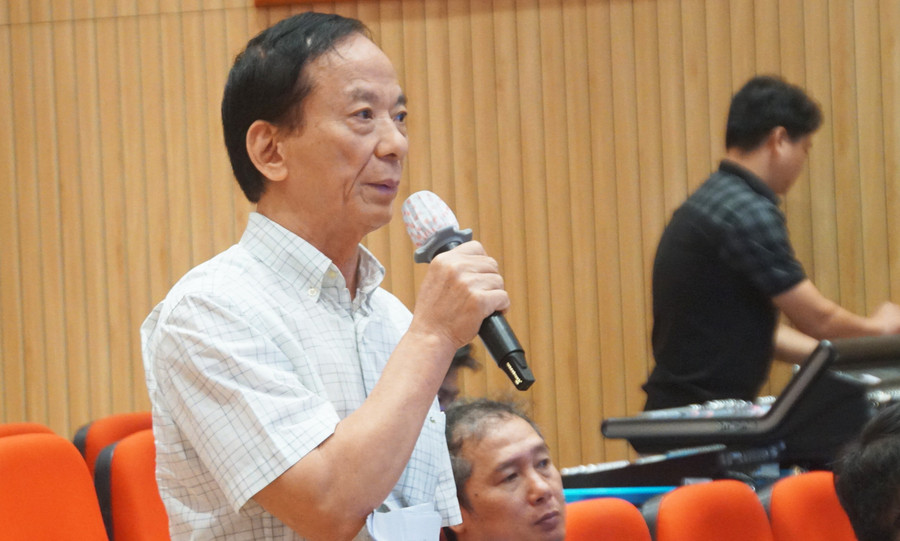
Associate Professor, Dr. Bui Anh Thuy, Dean of the Faculty of Law, Van Lang University, gave important comments on regulations related to the Science and Training Council.
According to the draft, the Science and Training Council is defined as a "professional and academic advisory organization" with the function of "advising and providing feedback on policies, orientations for the development of teaching staff, training activities, science and technology, international cooperation and other professional and academic activities".
The draft also states that this Council "works according to the principles of collective democracy, majority decision making; is responsible to the school board and principal for the advisory content."
However, Associate Professor Dr. Bui Anh Thuy raised a key issue: is the Principal responsible for the science and technology fields that this council advises, or should he only consider the council's proposals at the advisory level?
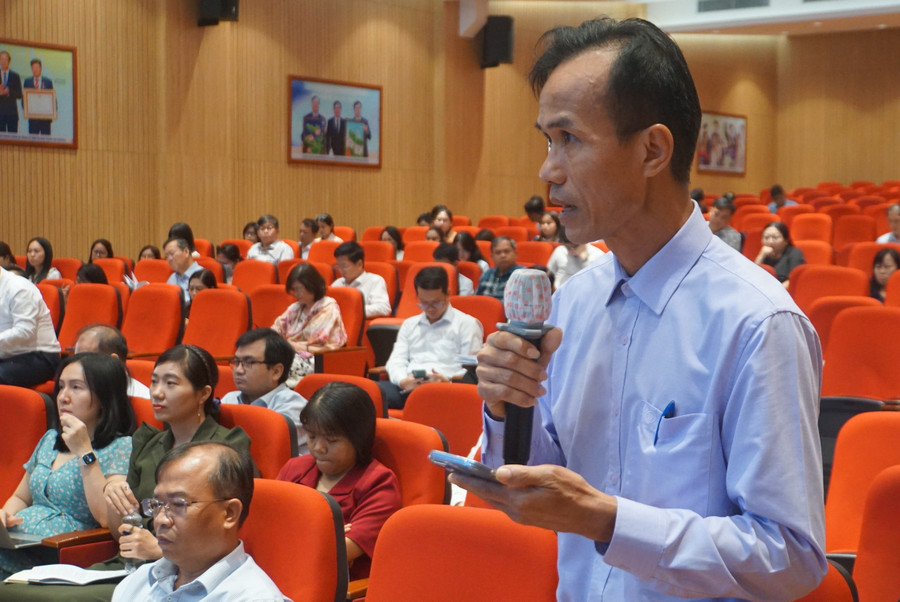
The workshop on providing comments on the draft Law on Higher Education received many diverse opinions. Delegates focused on discussing the organizational structure, training program standards, conditions for program implementation, and duties and powers of lecturers.
In particular, many recommendations were made on the organization of the University Council and the university autonomy mechanism at member schools of national universities and regional universities.
Closely follow the major policies of the Party and State
According to Deputy Minister Hoang Minh Son, the draft Law on Higher Education (amended) this time is built in a concise spirit, not going into details. Because this is a framework law, fundamental and highly sustainable for the development of higher education.
According to the Deputy Minister, the contents included in the draft law must fully and comprehensively reflect the major policies and guidelines of the Party and State with important orientations such as: developing science and technology, innovation, developing high-quality human resources, promoting the private economy, digital transformation and green transformation, etc.
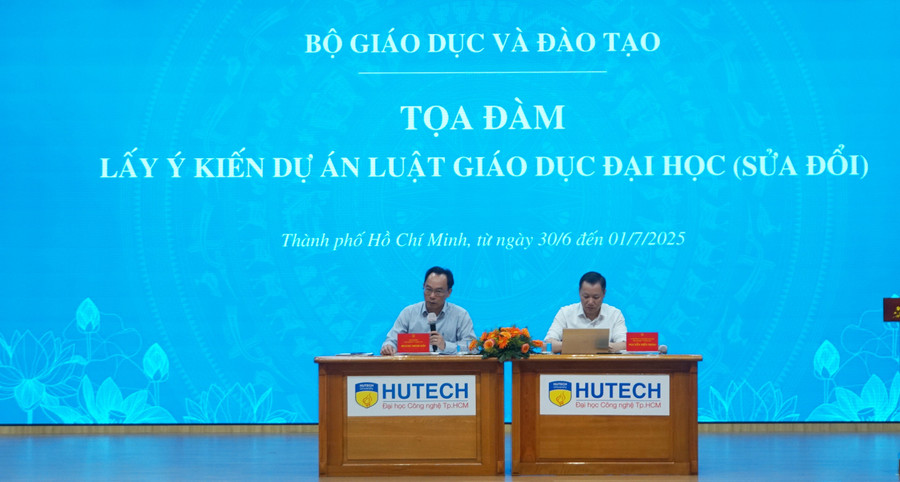
Deputy Minister Hoang Minh Son raised an important issue with the delegates, whether the draft Law on Higher Education (amended) has really resolved the backlog and practical problems that have arisen in the past, or whether there are still legal gaps that need to be supplemented and overcome.
The Deputy Minister also emphasized the requirement for consistency of the draft law with other laws, especially legal documents related to science and technology, cadres, civil servants and public employees.
This is to ensure a consistent legal system, avoiding overlap or contradiction during implementation.
The Deputy Minister also asked delegates to focus on the wording of the draft law, ensuring that the regulations are strict, clear, easy to understand and easy to apply in practice.
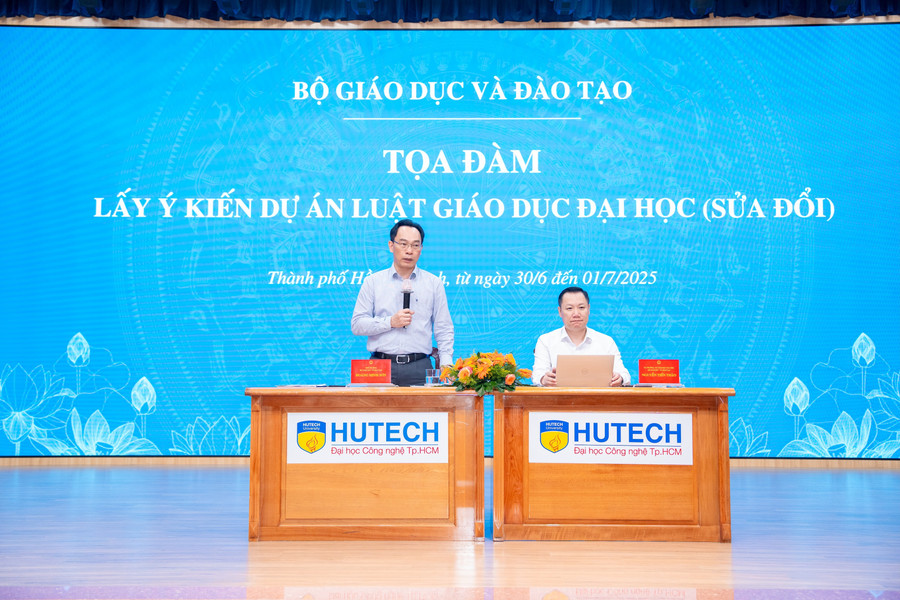
At the workshop, Deputy Minister Hoang Minh Son and Director of the Department of Higher Education (Ministry of Education and Training) Nguyen Tien Thao received opinions and discussed with delegates on each group of issues: School Council; Training activities; Quality assessment..
Deputy Minister Hoang Minh Son said that the upcoming approach to training programs is for schools to "open training programs" instead of "opening majors".
These programs can be designed as single-disciplinary or interdisciplinary programs and must be included in the Statistical List of Training Majors. This list is the basis for schools to open training programs in the major.
Regarding the implementation of doctoral training programs, the Deputy Minister said that this will be tightened and narrowed in the near future.
The Minister of Education and Training will approve the implementation of doctoral training programs. The assessment and assurance of training quality will also be implemented more strictly.
The discussion to collect opinions on the draft Law on Higher Education (amended) took place over 2 days, June 30 and July 1 at Ho Chi Minh City University of Technology. At the discussion on June 30, delegates also focused on groups of issues related to the University Council, training programs, enrollment, quality assessment, etc.
Deputy Minister Hoang Minh Son said he would absorb all comments from experts and delegates during the two-day discussion; at the same time, he hoped to continue receiving other comments from teachers, experts, and leaders of higher education institutions to complete the draft law.
Source: https://giaoducthoidai.vn/thao-go-bat-cap-tao-da-doi-moi-cho-giao-duc-dai-hoc-post737967.html




![[Photo] Prime Minister Pham Minh Chinh meets with Speaker of the New Zealand Parliament Gerry Brownlee](https://vphoto.vietnam.vn/thumb/1200x675/vietnam/resource/IMAGE/2025/8/28/cec2630220ec49efbb04030e664995db)
![[Photo] General Secretary To Lam presents the 45-year Party membership badge to comrade Phan Dinh Trac](https://vphoto.vietnam.vn/thumb/1200x675/vietnam/resource/IMAGE/2025/8/28/e2f08c400e504e38ac694bc6142ac331)
![[Photo] Red flag with yellow star flutters in France on National Day September 2](https://vphoto.vietnam.vn/thumb/1200x675/vietnam/resource/IMAGE/2025/8/28/f6fc12215220488bb859230b86b9cc12)
![[Photo] Politburo works with the Standing Committee of Cao Bang Provincial Party Committee and Hue City Party Committee](https://vphoto.vietnam.vn/thumb/1200x675/vietnam/resource/IMAGE/2025/8/28/fee8a847b1ff45188749eb0299c512b2)
![[Photo] General Secretary To Lam attends the opening ceremony of the National Achievements Exhibition](https://vphoto.vietnam.vn/thumb/1200x675/vietnam/resource/IMAGE/2025/8/28/d371751d37634474bb3d91c6f701be7f)
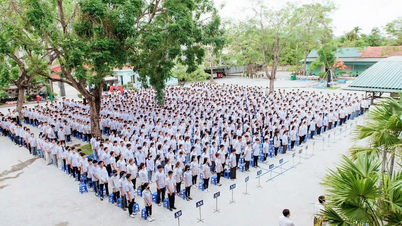
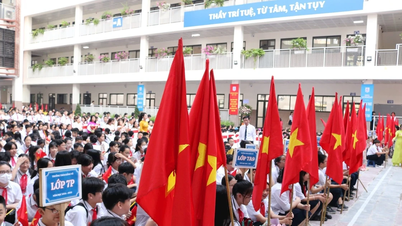
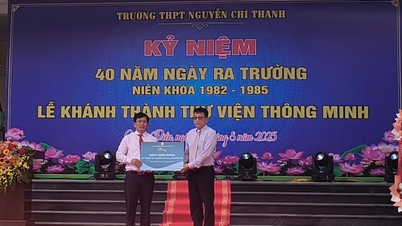

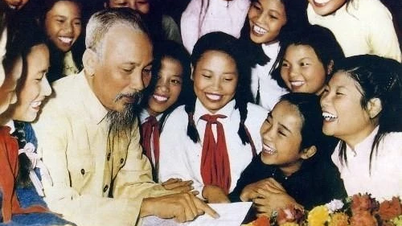
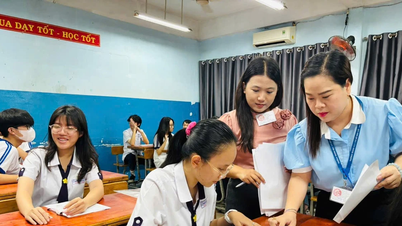


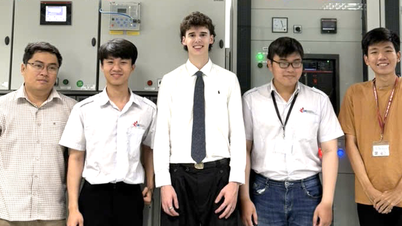

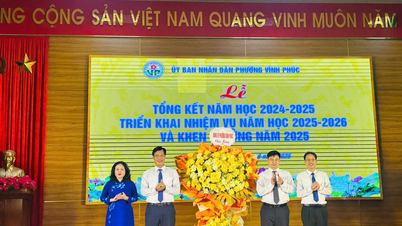
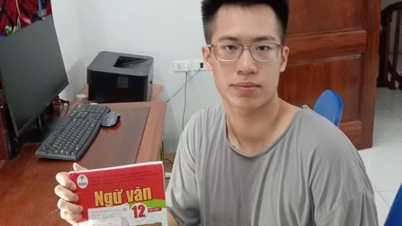



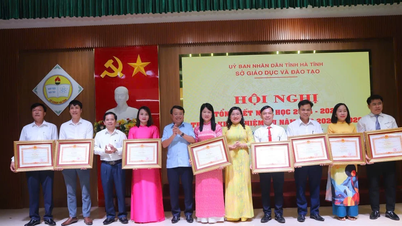






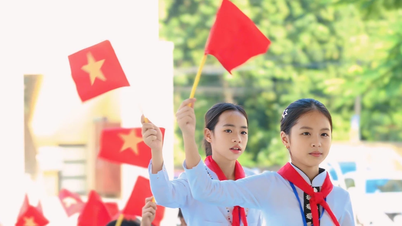
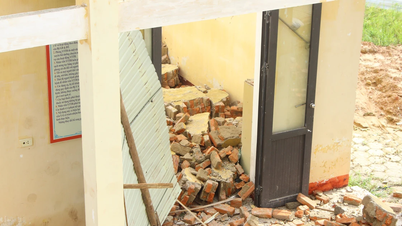
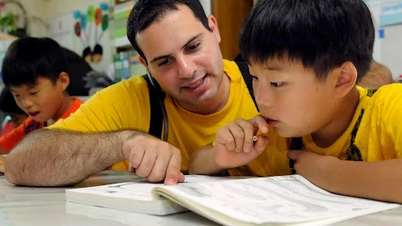











































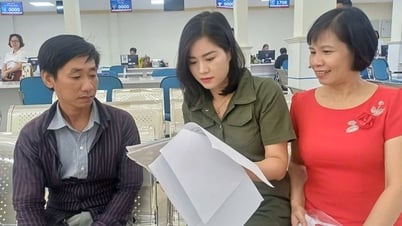



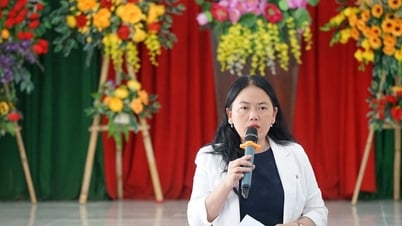




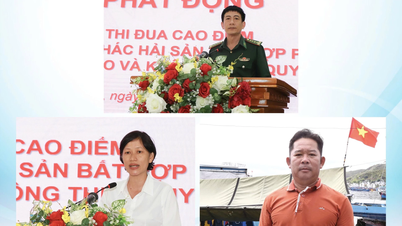
















Comment (0)